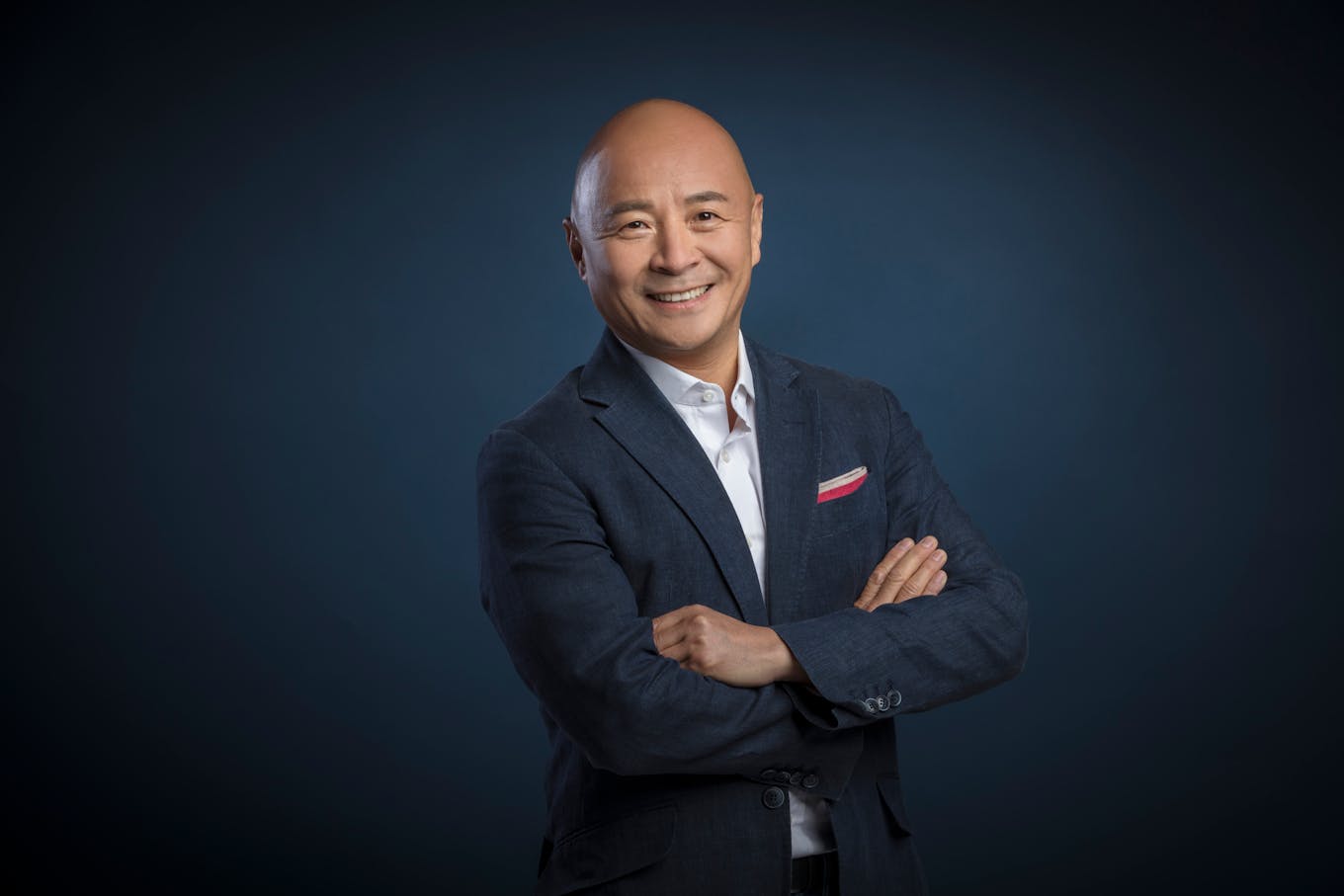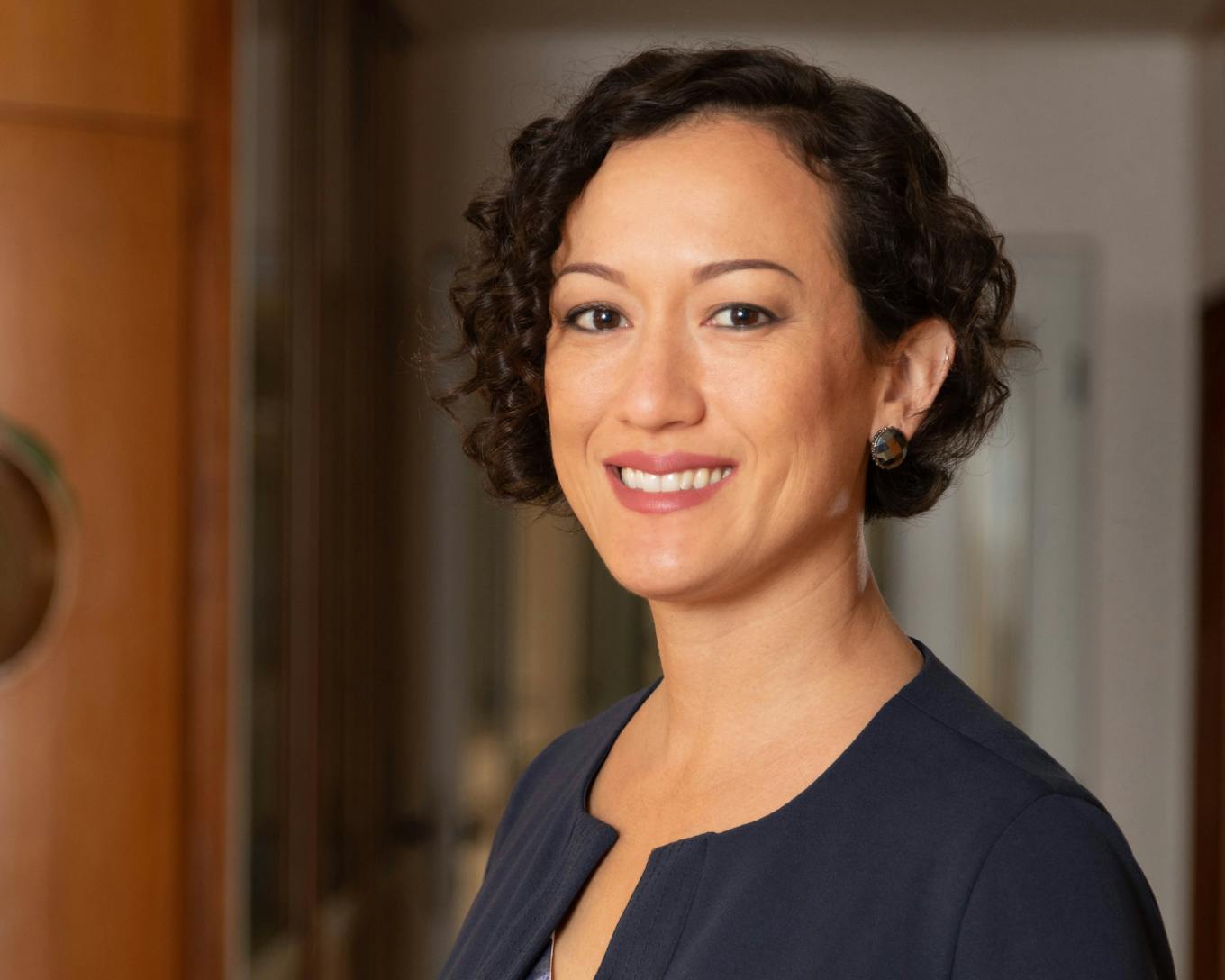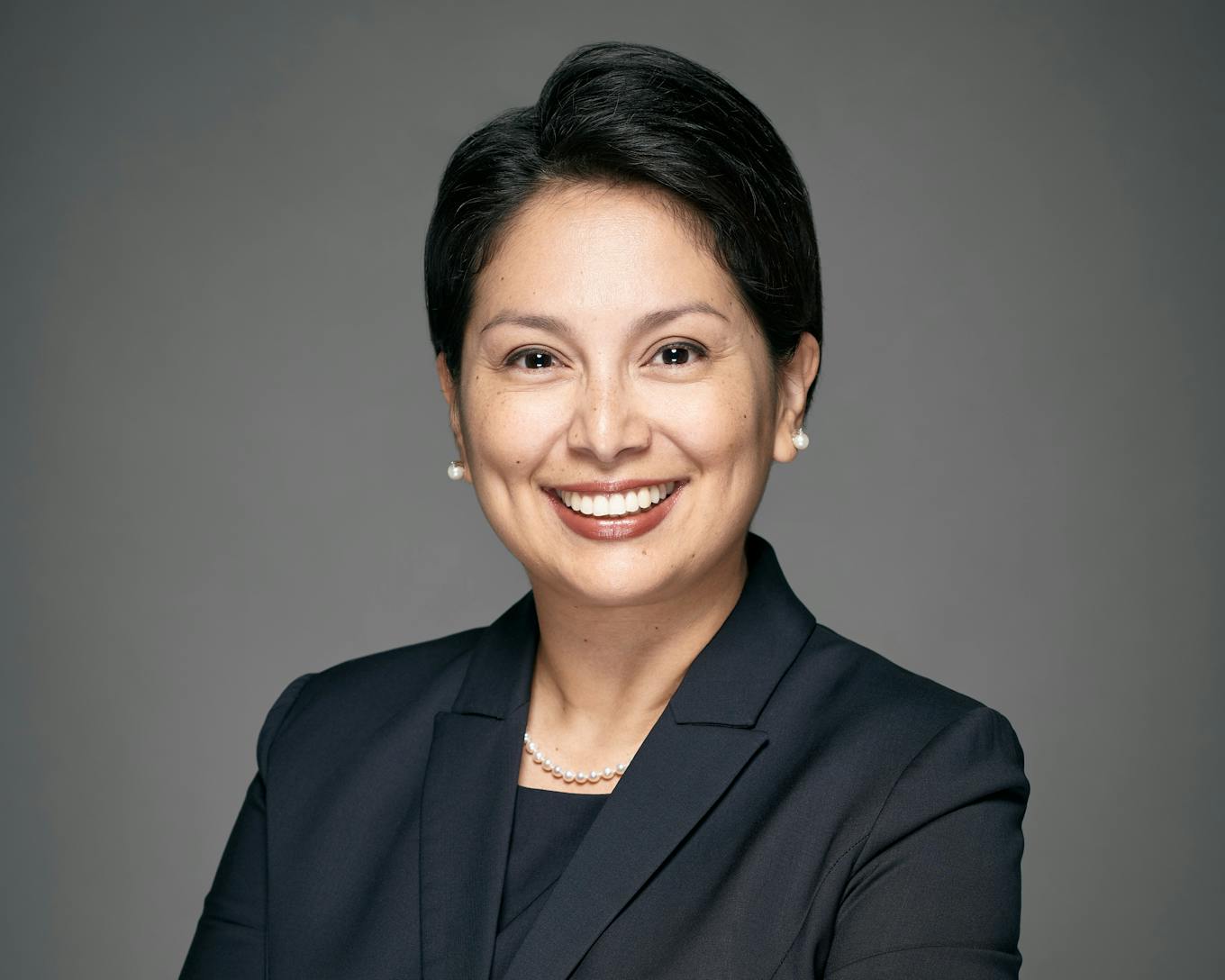As the “alphabet soup” of reporting standards shows signs of consolidating with the launch of the International Sustainability Standards Board (ISSB)’s standards last year, chief sustainability officers (CSOs) might see some relief from their reporting burdens in the year ahead.
The inaugural standards, which the ISSB chair described as ”sustainability translated into an accounting language”, have catalysed a shift in mandatory sustainability reporting responsibilities previously placed on CSOs to the legal, risk management and finance functions.
But whether this truly frees CSOs up to focus on performance improvement and setting company direction depends on how well-established a company’s sustainability programme is, said Chris Cattermole, ESG advisory and solutions global lead at product safety and certification organisation UL Solutions, who noted a spike in demand for support to execute net-zero goals set two to three years ago.
Companies with a sustainability function that is more than a decade old might see this shift in reporting burdens, but many firms in Southeast Asia outside of the “high sustainability performers” are still under-resourced and “relying on goodwill across the organisation to get things done,” he observed.
Greater awareness around emerging forms of greenwash, such as green-hush (when firms downplay their sustainability achievements for fear of backlash) or green-rinse (when firms regularly change their sustainability targets before they are achieved), also means that the sustainability function is increasingly tied to corporate reputation and financial performance, said Cattermole.
Darian McBain, founder and chief executive of sustainability advisory firm Outsourced Chief Sustainability Officer (OCSO) Asia concurred that figuring out how to nuance communications to external stakeholders to avoid greenwash and green-hush will be high on the agenda for CSOs in the year ahead.
Other key agenda items include navigating the environmental, social and governance (ESG) backlash in the United States and the forthcoming supply chain regulations from the European Union, such as the Carbon Border Adjustment Mechanism (CBAM), Human Rights Due Diligence (HRDD) and anti-deforestation law, said McBain.
Planning for what comes next for the Sustainable Development Goals (SDGs) post-2030, starting with the United Nations’ Summit for the Future this year, would also be interesting to watch, she said.
Eco-Business checked in with sustainability heads in Singapore, Hong Kong, Malaysia and Indonesia to get a sense of their priorities and the trends they are watching in 2024.
Leiming Chen, senior vice president, Ant Group and chief sustainability officer, Ant International

Leiming Chen is the chief sustainability officer of Chinese fintech giant Ant Group’s international arm Ant International. He has also served as the group’s senior vice president since March 2016.
Corporate sustainability is a multi-disciplinary practice which involves mobilising all the departments to come on board. The implementation of our sustainability strategy is not simply an isolated exercise or a checklist to be fulfilled. It involves an in-depth organisational and mindset transformation to bring about real change, which is challenging in our diverse, cross-culture and multi-market context. We see sustainability and business growth as dual value carriers for our organisation’s long-term success, so we will continue to focus on the internal capacity-building as well as external engagement with our partners.
Speaking of the trends in 2024, addressing challenges faced by small and medium enterprises (SMEs) globally will become ever more pressing. SMEs account for around 90 per cent of global business and play a key role in the global supply chain. As more markets require mandatory carbon disclosure, SMEs will increasingly need the knowledge and resources to take climate action. We always talk about financial inclusion and digital inclusion, but sustainability inclusion for SMEs is equally important.
Ant Group has been accelerating research and development efforts for energy-saving and carbon-reduction technologies, such as our efforts to improve the operating efficiency of the computing system and reduce the number of required servers for businesses through AI and other technologies.
But if the underlying business model and data infrastructure are not ready to include the “smaller guys”, or SMEs and individuals that are underserved, having tech is not going to generate real impact. For this reason, we take a user-driven approach to ensure our sustainability solutions are scalable in the long term. We make use of our platform capabilities and technologies to enhance the public’s awareness of green and low-carbon practices in daily life, such as through the Alipay Ant Forest project on the company’s mobile payment application Alipay, which has more than 650 million users. They are rewarded with “green energy points” for taking steps to reduce their emissions, such as by biking to work or going paperless. These points can be used to grow a virtual tree on the app, which Alipay matches by planting a real tree or protecting a conservation area in partnership with local non-governmental organisations.
Joelle Chen, head of sustainability, Asia, Lendlease

An architect by training, Joelle Chen, joined Lendlease in 2021 and currently leads the implementation of its sustainability strategy in Asia. Image: Lendlease
The big focus for us this year is partnering with our supply chain. For Scope 1 and 2, there is almost nothing more we can do apart from our continued advocacy work, because that is just where the market is at in Asia. While we have managed to procure 100 per cent renewable diesel that’s made in Singapore for our business in Europe due to the subsidies available there, we ironically still cannot access any of that here at price parity with conventional diesel to mitigate our Scope 1 emissions. For Scope 2, while we are just waiting for more renewables to come online in Asia’s grid, we can put more solar on our rooftops and look at improving energy efficiency and energy consumption reduction at the building level.
Scope 3 is the biggest source of our emissions and there are three key challenges that we are trying to tackle. The first is on measurement and reporting, which is why we launched our Scope 3 Protocol and made it open source, to get our peers and the supply chain to measure and report in a consistent way so reporting doesn’t become a distraction. The second is around data, which we have been talking about in Asia ever since I joined Lendlease. What we’ve been pushing for is transparency in our supply chain through verified Environmental Product Declaractions (EPDs). EPDs are quite common in Europe and the Americas, but their coverage in Asia is not that great. The third challenge is about the decarbonisation of hard-to-abate materials like steel, concrete and glass.
I’m quite encouraged by some of the advances our supply chain has made, because these are multi-billion dollar investments they have to make to their own plants, and the low-carbon products they produce are nowhere near competitive in the market. This is where our strategic relationship with suppliers needs to come in. So we work very closely with our supply chain and procurement department to make sure we have these early conversations with our suppliers and support a pipeline or project to give them the assurance that there is a market for their products and to publicise them. That is something we actively champion because the procurement process is very flawed in our industry and very transactional. This is the key nut to crack to drive demand for low-carbon materials as an industry.
In the year ahead, I think the role of the CSO as a programme manager for all things sustainability-related will continue. But something CSOs might want to look out for is data literacy in the sustainability function. For me, that is a really exciting piece and a new frontier for sustainability. An example would be looking at the emissions data of concrete. About 20 to 25 per cent of the total amount of carbon produced by a building over its entire life cycle is from concrete, and cement is the single highest contributor – or 90 per cent – of concrete emissions. So it becomes a no brainer on the business decisions side to tackle that one ingredient.
Steve Newman, chief sustainability officer, EarthCheck

Steve Newman joined EarthCheck, a global environmental benchmarking certification and advisory group for the travel and tourism industry, as chief sustainability officer after over eight years with hospitality group Banyan Tree. Image: Steve Newman
Since leaving Banyan Tree, I have developed a much broader perspective of the travel and tourism sector. When you’re working as a CSO, you can feel quite siloed and problems can feel unique to you because your work cuts across every single aspect of the business. Now that I engage with many sustainability teams and different companies, it is quite reassuring to realise that everybody faces the same challenges.
Some of the responsibilities that have historically been put on CSOs are now shifting to other parts of the executive leadership. The legal and risk teams are suddenly having to deal with topics that were predominantly pushed under the umbrella of CSOs. So the good news is that the roles of CSOs are becoming far clearer and they are able to focus on the things that are important.
The market pullback on ESG is natural and anticipated because ESG is maturing, and corporate and financial sectors are having to grow with it. The huge challenge for everyone remains trying to demonstrate tangible data-driven evidence that connects ESG with financial performance. Until you can connect those dots, it becomes compliance and box-ticking.
For CSOs, 2024 doesn’t seem that important. It’s not one of those round numbers – it’s not 2030, it’s not 2020. But it is quite critical. This is the year where you’ve got to plan so that you can create measurable impact in the final five years towards the SDGs and decarbonisation targets. Companies are starting to engage far more strategically in a risk-based approach on these matters.
“
The huge challenge for everyone remains trying to demonstrate tangible data-driven evidence that connects ESG with financial performance. Until you can connect those dots, it becomes compliance and box-ticking.
Steve Newman, chief sustainability officer, EarthCheck
In my role, I’ve set up an ESG division within EarthCheck, which is a benchmarking certification service for sustainable hospitality operations. You’ve got the Big Four consulting firms and these emerging sustainability experts whose services are overpriced and also very generic. But within EarthCheck, we’re focusing on an industry where we’ve got over 30 years of expertise. My goal is to help as many companies as possible get strategically prepared to know what they should be doing and measuring up until 2030 so they can demonstrate impact in a way that’s accessible and affordable. There’s also the need to support companies in reporting because there are now far more sophisticated greenwashing regulations, which I think is fantastic.
Julie Greene, chief sustainability officer, Olam Agri

Julie Greene was appointed the chief sustainability officer of multinational agri-business Olam Agri in 2022, after an over decade-long career with Olam Group.
One challenge I face is articulating the investment case for sustainability in a way that accounts for the immediate direct financial impacts for our business and our partners, while valuing the intangible or longer term social, biodiversity and climate-related impacts. Another challenge is access to finance for the over 600 million smallholder farmers who are fundamental to global food supply chains. Few have access to formal banking systems and even fewer have access to newer forms of value such as carbon credits from agroforestry or soil carbon sequestration initiatives, as well as premiums for sustainable, low-carbon products.
While a small portion of agricultural products going to certain markets and certain types of specialty products, like coffee, can command a premium for sustainability, the bulk of the world’s agricultural products such as grains and oil seeds currently find limited market demand for sustainability. Customers and consumers aren’t willing to pay for sustainable staple foods in general. This makes it difficult to invest in sustainability initiatives which can often require an intense or sustained investment, such as in restoring soil health, which takes several years of regenerative practices to build up.
My primary focus this year is to accelerate the transition to regenerative agriculture. Going into 2024, we are expanding our ambitions to advance regenerative agriculture across landscapes worldwide, catering to both small and large growers. This will require financial mechanisms such as patient capital and well-functioning voluntary carbon markets, as well as continued research and pilots to identify technologies and farming systems that work in different contexts.
On the technical front, I’m closely watching the increasingly nuanced understanding of how we can effectively harness nature-based solutions to sequester carbon, such as agroforestry, biochar and improved soil management. On the market front, I’m focused on the advancements for low-carbon or regenerative agriculture certified products. I’m also tracking developments in voluntary carbon markets and keeping an eye on the nascent nature and biodiversity markets, which may hold the potential to facilitate investments in biodiversity, ecosystems and soil health.
We are preparing to address forthcoming EU-led regulations, such as EU Deforestation Regulation (EUDR) and Corporate Sustainability Due Diligence Directive (CSDDD), in collaboration with our European partners. In the broader global landscape where corporate accountability knows no boundaries, new frameworks and reporting requirements are being implemented in parallel too. We are reviewing our supply chains on an ongoing basis and investing in solutions such as track and trace systems to enhance overall data transparency and traceability.
Diana Guzman, chief sustainability officer, Prudential plc

Diana Guzman was appointed the chief sustainability officer of Asia-focused multinational insurer Prudential in January 2024. Prior to taking on the Singapore-based role, she was the group’s ESG director and led the World Economic Forum’s Sustainable Development Investment Partnership. Image: Prudential plc
I’m very keen to make a strong case that business performance and societal progress are not independent of each other, but remain more inseparable than ever. Our guiding principle is that sustainability is the long game towards value creation and that there is hardly room for quick fixes. But if we are to champion sustainability within our industry, this effort needs to begin at home. That’s why one of our aims this year is to develop a culture that places sustainability and inclusivity as core values. We want our employees to not only understand how these values fit into our broader corporate purpose, but to contribute meaningfully to positive societal and environmental impact in their day-to-day work at Prudential.
Embedding sustainable practices into a business model takes time, a strong business case and the commitment of all stakeholders to ensure a seamless transformation, but we have identified two areas as a start this year. The first is to enable our people to shape our impact. Our ambition is for all our people managers to have sustainability-linked key performance indicators (KPIs) by 2026. We will be providing opportunities and platforms such as training to enhance their sustainability capabilities. Secondly, we want to pay more attention to the “social” aspect of ESG as we believe people should be at the heart of sustainability efforts. One of the ways we try to incorporate inclusivity is by developing products that meet the needs of underserved demographics, such as through introducing a digital product in Cambodia that offers lower income customers coverage on five critical illness conditions for as little as US$25 per year.
Given Prudential’s position as a prominent investor and asset owner, we are keen to support a just and inclusive transition to net zero that leaves no one behind in emerging markets across Asia and Africa, where we have an outsized presence. We collaborate with our asset manager Eastspring Investments to ensure that we support our investees in meeting the needs of a just and inclusive transition to influence real-world impact. For example, while in developed markets, the focus lies on financing green energy solutions; in many emerging markets in Asia, finding ways to finance phase-out of carbon intensive assets like coal plants has the potential to achieve significant absolute carbon reductions. This means that the different decarbonisation pathways of these countries, even in the same sector, have to be taken into account when engaging with companies and policymakers and in financing the transition.
Leo Pui Yong, chief sustainability officer, Tenaga Nasional Berhad

Leo Pui Yong is the former chief risk officer of Tenaga Nasional, the national utilities firm of Malaysia. She was appointed as the company’s new chief sustainability officer effective 1 June 2023. Image: Tenaga Nasional
Digitalisation has emerged as a primary focus for this year. We are prioritising the digitalisation of over 150 key sustainability indicators we have identified, a crucial step towards efficient data management and transparency in our sustainability journey. The main challenge we foresee in getting this done lies in the absence of a clear, universal definition for ESG indicators, leading to varied interpretations across industries and companies. The introduction of ISSB standards heralds a pivotal opportunity to standardise ESG reporting across industries and companies. These standards will advance consistency and comparability in sustainability reporting, amplifying transparency, and accountability. At the moment, our sustainability statements and reporting adhere to Bursa Malaysia’s main market listing requirements and remain aligned with Global Reporting Initiative (GRI), the Electric Utilities Sector Disclosure, the Task Force on Climate-related Financial Disclosures (TCFD), and the United Nations SDGs. This ensures that our digitalisation efforts contribute to broader sustainability goals while adhering to industry-recognised standards.
We are closely monitoring key trends that are shaping the sustainability landscape, including enhancing climate resilience, prioritising sustainable supply chains, and reinforcing corporate oversight for sustainability. To address these challenges, we are proactively managing climate change risks, working closely with our vendors to ensure sustainability alignment, and are committed to enhancing transparency in governance. These sustainability trends remain at the forefront of our attention, and TNB is dedicated to remaining vigilant and responsive to these evolving dynamics.








